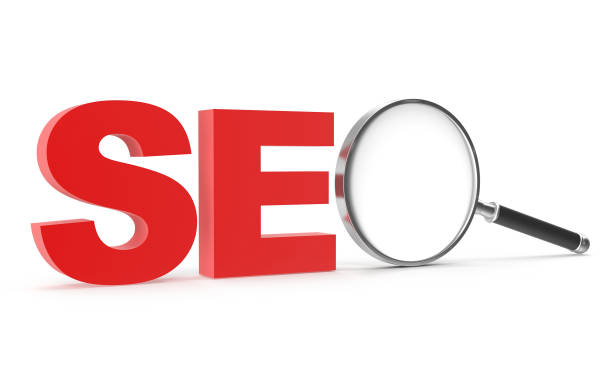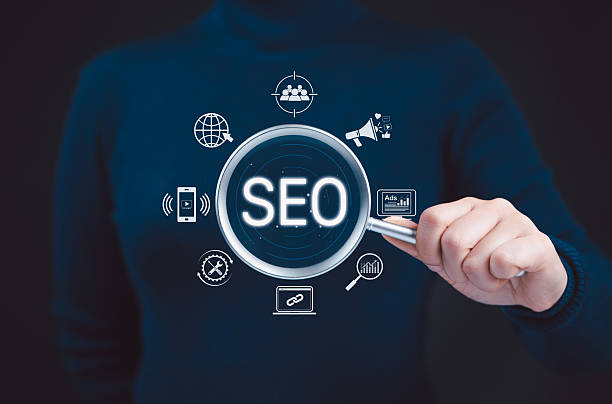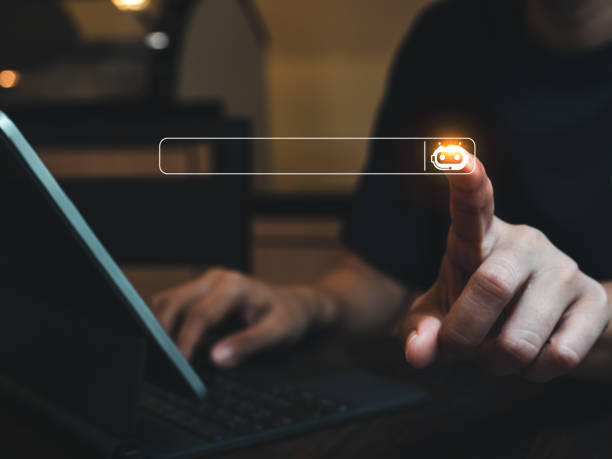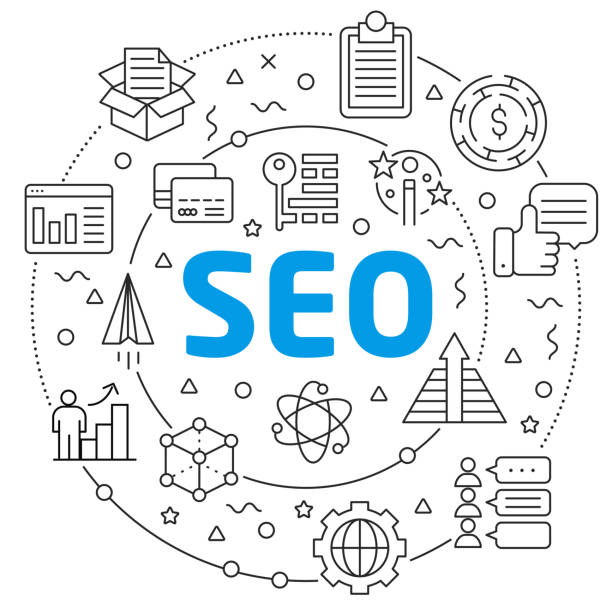### What is Off-Page SEO? Definition, Importance, and Basic Principles

Off-Page SEO is a collection of activities and actions that take place outside of your website and are aimed at improving the site’s ranking in search engine results (SEO).
In fact, Off-Page SEO shows search engines that your website is credible, valuable, and relevant to the search query.
The importance of Off-Page SEO is that it directly affects the site’s ranking, inbound traffic, and ultimately, the success of your online business.
Unlike On-Page SEO (#On-Page SEO), which focuses on optimizing site content, link structure, and other internal elements, Off-Page SEO deals with factors such as link building, social media presence, online branding, and advertising.
Search engines like Google consider these factors as signals of your website’s credibility and quality.
In other words, Off-Page SEO is a type of vote of confidence from other websites and online resources to your website.
The more numerous and higher quality these “votes” are, the higher your site’s ranking will be in search results.
To better understand Off-Page SEO, you need to be familiar with key concepts such as link building, domain authority, page authority, and social networks.
These concepts will be explained in detail in later chapters.
Are you tired of your company’s website failing to meet your expectations? With Rasaweb, design a professional website that showcases the true face of your business.
✅ Increase the attraction of new customers and sales leads
✅ Increase the credibility and trust of your brand with your audience
⚡ Get a free website design consultation!
Link Building; The Beating Heart of Off-Page SEO
![]()
Link building is the process of creating links from other websites to your website.
These links are known as “Backlinks” and are one of the most important factors in Off-Page SEO.
Backlinks show search engines that other websites consider your content valuable and trustworthy.
But not every backlink is valuable.
The quality and credibility of the website that links to you is very important.
A backlink from reputable websites that are relevant to your topic has a much greater impact than a backlink from low-quality and irrelevant websites.
For example, a backlink from Wikipedia or a reputable news website is much more valuable than a backlink from a spam blog.
There are various methods for link building, including:
- Creating high-quality and valuable content that naturally earns links.
- Participating in interviews and events related to your industry.
- Contacting bloggers and journalists and requesting a link to your website.
- Exchanging links with partner websites (with caution).
- Registering the website in reputable directories.
In link building, you should also pay attention to the diversity of links.
Having backlinks from various sources shows search engines that your website is widely trusted.
How do Domain Authority (DA) and Page Authority (PA) affect Off-Page SEO?

Domain Authority and Page Authority are two important metrics provided by Moz and are used to measure the strength and credibility of a website and its pages.
These metrics are calculated based on various factors such as the number and quality of backlinks, domain age, and the amount of user engagement.
Domain Authority (DA) indicates the overall strength of a website, while Page Authority (PA) indicates the strength of a specific page of the website.
The higher the DA and PA of a website, the more likely it is to rank better in search results.
Therefore, improving DA and PA can help improve your website’s Off-Page SEO.
To improve DA and PA, you can take the following actions:
- Produce high-quality and valuable content that naturally earns links.
- Create backlinks from reputable and relevant websites.
- Improve the internal structure of the website and internal linking.
- Increase user engagement with the website (such as comments, shares, and visits).
Keep in mind that improving DA and PA is a time-consuming process and requires effort and patience.
However, investing in this area can have a significant impact on the success of your website’s Off-Page SEO.
| Metric | Description | Impact on SEO |
|---|---|---|
| Domain Authority (DA) | Indicates the overall strength of a website | Better ranking in search results |
| Page Authority (PA) | Indicates the strength of a specific page of the website | Better ranking of the page in search results |
Social Networks and Off-Page SEO; A Two-Way Relationship

Active presence on social networks can help improve your website’s Off-Page SEO.
Although social networks do not directly affect site ranking in Google, they can help increase brand awareness, attract traffic, and create backlinks.
In other words, social networks can act as a catalyst for Off-Page SEO.
When your content is shared on social networks, the likelihood of it being seen by more people increases.
This can lead to increased visits to your website, creation of backlinks from other websites, and increased awareness of your brand.
To effectively use social networks in Off-Page SEO, you should:
- Be active in social networks related to your industry.
- Produce high-quality and engaging content.
- Regularly interact with your audience.
- Use relevant hashtags.
- Put your website link in your social media profiles.
Remember that social networks are a powerful tool for marketing and branding and can indirectly help improve your website’s Off-Page SEO.
Still don’t have a company website and are missing online opportunities? With a professional company website design by Rasaweb,
✅ Double the credibility of your business
✅ Attract new customers
⚡ Free consultation for your company website!
Content Marketing and Off-Page SEO; Producing Valuable Content to Attract Links and Traffic

Content Marketing is a powerful strategy for Off-Page SEO.
By producing valuable and engaging content, you can attract more audiences, increase awareness of your brand, and receive high-quality backlinks.
Valuable content is content that is useful, informative, entertaining, or inspiring to the audience.
This type of content naturally earns links and is shared on social networks.
There are various types of content that you can produce for content marketing, including:
- Blog articles
- Infographics
- Videos
- Podcasts
- E-books
- Case studies
To succeed in content marketing, you must:
- Know your target audience.
- Find out their interests.
- Produce high-quality and unique content.
- Publish your content regularly.
- Promote your content on social networks.
By producing valuable content, you can naturally receive high-quality links and improve your website’s ranking in search results.
Off-Page SEO, with content marketing, can increase user traffic to the site
Online Advertising and Off-Page SEO; Smart Investment to Increase Visibility

Online advertising can indirectly help improve your website’s Off-Page SEO.
By running effective advertising campaigns, you can increase awareness of your brand, drive more traffic to your website, and receive high-quality backlinks.
Online advertising can help Off-Page SEO in various ways:
- Increase Brand Awareness: Online advertising can help increase awareness of your brand.
When more people are familiar with your brand, they are more likely to link to your website. - Attract Traffic: Online advertising can drive more traffic to your website.
This traffic can lead to increased visits to your website, creation of backlinks, and increased user engagement. - Create Backlinks: Some advertising campaigns can directly lead to the creation of backlinks.
For example, you can promote an attractive infographic and ask other websites to link to it.
There are various types of online advertising that you can use for Off-Page SEO, including:
- Pay-Per-Click (PPC) advertising
- Banner advertising
- Social media advertising
- Content advertising
To effectively use online advertising in Off-Page SEO, you must:
- Define your goals.
- Know your target audience.
- Choose the right advertising platforms.
- Design attractive and effective ads.
- Measure the results of your campaigns.
Online Public Relations and Off-Page SEO; Communicating with Media and Influencers

Online Public Relations (Online PR) refers to the process of communicating with media, bloggers, and influencers to publish news and information about your brand on the internet.
Online public relations can significantly help improve your website’s Off-Page SEO.
When news and information about your brand is published on news websites, blogs, and social networks, the likelihood of it being seen by more people increases.
This can lead to increased visits to your website, creation of backlinks from reputable websites, and increased awareness of your brand.
To succeed in online public relations, you must:
- Produce attractive and valuable news and information for the media.
- Create a list of media, bloggers, and influencers related to your industry.
- Communicate with them and send them your news and information.
- Participate in events related to your industry and meet with reporters and bloggers.
- Use online tools to monitor news and information about your brand.
Online public relations is a long-term strategy and requires patience and effort.
However, investing in this area can have a significant impact on the success of your website’s Off-Page SEO.
| Benefits | Description |
|---|---|
| Increase brand awareness | News and information about your brand is published in various media. |
| Attract traffic | More people are directed to your website through links in news and information. |
| Create backlinks | Reputable websites link to news and information about your brand. |
Reviewing and Analyzing Competitors in Off-Page SEO; Identifying Opportunities and Threats

Reviewing and analyzing competitors is one of the most important steps in Off-Page SEO.
By reviewing and analyzing competitors, you can identify their strengths and weaknesses, model their successful strategies, and learn from their mistakes.
In reviewing and analyzing competitors, you should pay attention to the following:
- Backlinks: Which websites have your competitors received backlinks from? How is the quality and credibility of these websites?
- Social Networks: Which social networks are your competitors active on? What type of content do they publish? How is the level of user engagement with their content?
- Content Marketing: What type of content do your competitors produce? How is the quality and value of this content?
- Online Advertising: Which advertising platforms do your competitors advertise on? What type of ads do they design?
- Online Public Relations: Which media and influencers do your competitors communicate with? What news about them is published in the media?
By using various SEO tools, you can collect and analyze information about competitors.
By analyzing this information, you can identify opportunities and threats in Off-Page SEO and develop a suitable strategy to compete with competitors.
Off-Page SEO helps SEOs by analyzing competitors.
Are you worried about the low conversion rate of your online store and not getting the sales you want?
Rasaweb is your specialized solution for having a successful online store.
✅ Significant increase in conversion rate and sales
✅ Professional and user-friendly design to satisfy customers
⚡ Ready for a transformation in online sales? Get a free consultation!
Off-Page SEO Tools; Essential Aids for SEO Professionals

SEO professionals need various tools to perform Off-Page SEO activities effectively and efficiently.
These tools help them collect and analyze information about websites, backlinks, social networks, competitors, and other factors affecting Off-Page SEO.
Some of the important Off-Page SEO tools include:
- Ahrefs: A comprehensive tool for checking backlinks, analyzing competitors, and monitoring keywords.
- SEMrush: A powerful tool for keyword research, competitor analysis, and content optimization.
- Moz: A reputable tool for checking Domain Authority (DA) and Page Authority (PA) and analyzing backlinks.
- Majestic: A specialized tool for checking backlinks and analyzing link profiles.
- Google Analytics: A free tool for monitoring website traffic and analyzing user behavior.
- Google Search Console: A free tool for checking website performance in search results and identifying SEO problems.
By using these tools, SEO professionals can make better decisions about their Off-Page SEO strategy and achieve better results.
Optimizing Off-Page SEO requires up-to-date tools for constant analysis.
Measuring and Evaluating Off-Page SEO Results; Ensuring the Effectiveness of Activities

Measuring and evaluating Off-Page SEO results is essential to ensure the effectiveness of activities and investments.
By measuring and evaluating the results, you can identify the strengths and weaknesses of your strategy and make the necessary changes if needed.
Some of the Key Performance Indicators (KPIs) that should be measured in Off-Page SEO include:
- Keyword Ranking: Your website’s ranking in search results for target keywords.
- Organic Traffic: The number of visitors who enter your website through search results.
- Number of Backlinks: The number of websites that have linked to your website.
- Domain Authority (DA) and Page Authority (PA): The strength and credibility of the website and its pages.
- Bounce Rate: The percentage of visitors who leave your website after viewing one page.
- Time on Site: The amount of time visitors spend on your website.
By using various SEO tools such as Google Analytics and Google Search Console, you can measure and analyze these indicators.
By analyzing this information, you can understand whether your Off-Page SEO strategy is effective or not and make the necessary changes if needed.
To check the SEO of websites, they must be checked constantly.
Off-Page SEO is as important as On-Page SEO.
Frequently Asked Questions
| Row | Question | Answer |
|---|---|---|
| 1 | What is Off-Page SEO? | Off-Page SEO refers to a set of actions that are performed outside of your website to improve its ranking in search engines. These actions include building backlinks, presence on social networks, branding, and so on. |
| 2 | Why is Off-Page SEO so important? | Off-Page SEO shows search engines that your website is credible, popular, and trustworthy. High-quality backlinks from reputable sites are a strong signal for better ranking and help increase your domain authority. |
| 3 | What are the most important components of Off-Page SEO? | The most important components of Off-Page SEO include: Link Building, Content Marketing, Social Media Marketing, Influencer Marketing, and Online Reputation Management. |
| 4 | What is a backlink and why is it important for Off-Page SEO? | A backlink is a link from another website that points to your website. These links act as a “vote of confidence” in Google’s eyes and indicate the credibility of your content. The higher the number and quality of backlinks, the better your site’s ranking will be. |
| 5 | What types of backlinks are there in terms of their impact on SEO? | There are two main types of backlinks: DoFollow and NoFollow. DoFollow backlinks transfer authority (Link Juice) and directly affect ranking. NoFollow links do not transfer authority but can still generate traffic and help make the link profile look natural. (Also UGC and Sponsored) |
| 6 | How can I create high-quality backlinks for my site? | To build high-quality backlinks, you can use methods such as: producing excellent and shareable content, guest posting on related and reputable sites, broken link building, digital PR, and competitor backlink analysis. |
| 7 | What are Toxic Backlinks and how do they affect the site? | Toxic or spam backlinks are links that point to your site from low-quality, spam, or irrelevant websites. These backlinks can damage your site’s ranking and even lead to a penalty from Google’s algorithms. |
| 8 | What is the role of social networks in Off-Page SEO? | Although social signals (likes, shares, etc.) are not direct ranking factors, they help with Off-Page SEO. They increase content visibility, increase direct traffic to the site, and ultimately increase the chance of earning natural backlinks and improving brand recognition. |
| 9 | What is the importance of diversity in a backlink profile? | Diversity in the backlink profile means that your links are from different sources (blogs, forums, news sites, directories), with diverse anchor texts, and with a combination of DoFollow and NoFollow links. This diversity shows Google that your link building is natural and organic. |
| 10 | What are the common mistakes in Off-Page SEO that should be avoided? | Common mistakes include: buying backlinks in bulk and from low-quality sources, over-linking with target keywords (Over-optimization), ignoring quality in favor of quantity in backlink building, lack of diversity in the link profile, and ignoring toxic backlinks and not Disavow them. |
And other services of Rasa Web Advertising Agency in the field of advertising
Smart Website Development: A professional solution to improve SEO ranking with a focus on custom programming.
Smart Marketplace: An exclusive service for growth in increasing sales based on marketing automation.
Smart UI/UX: A novel service to increase campaign management through custom programming.
Smart Link Building: A creative platform to improve the increase in click-through rate with Google Ads management.
Smart Social Media: An exclusive service for growth in increasing sales based on SEO-focused content strategy.
And more than a hundred other services in the field of internet advertising, advertising consulting, and organizational solutions
Internet Advertising | Advertising Strategy | Advertorial
Resources
Zoomit – What is Off-Page SEO?
,Chetor – Off-Page SEO
,Faraz SEO – What is Off-Page SEO?
,Modir Web – Off-Page SEO
? To reach the peaks of success in the online world and experience unprecedented sales, Rasa Web Afarin Digital Marketing Agency paves your way with its specialized services including advanced online store design.
📍 Tehran, Mirdamad Street, next to the Central Bank, Southern Kazerun Alley, Ramin Alley No. 6




